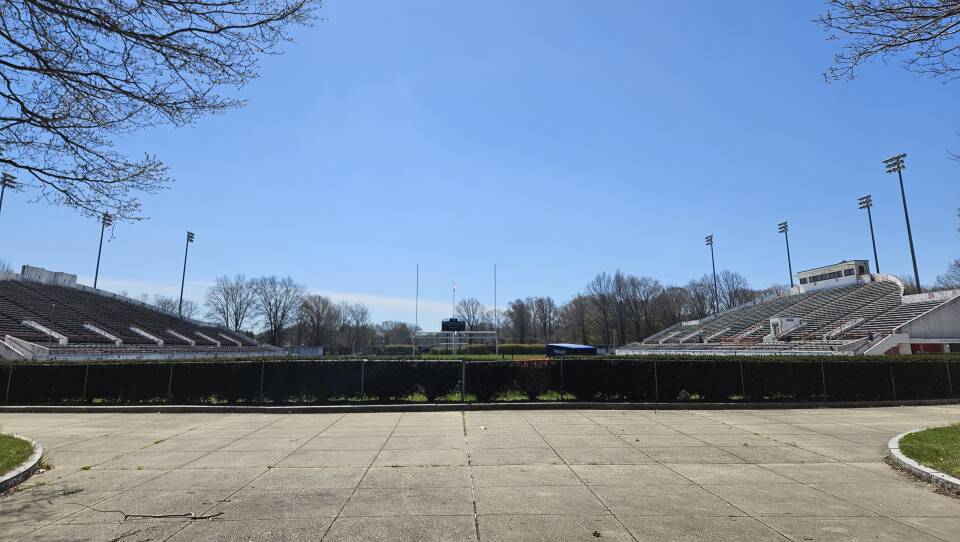As demolition on the White Stadium renovation project gets underway this week, the stark divide between those for and against that plan was on display at two Boston City Council meetings on Wednesday.
The meetings brought attention once again to the plan to refurbish White Stadium for dual use as a home for a National Women’s Soccer League team and a hub for Boston Public Schools athletics. That effort, which the city now estimates it will spend around $100 million on, has received a mixed reaction from those in the surrounding communities. A lawsuit opposing the project has a court date set for March.
City Councilor Julia Mejia, who presided over the meetings, acknowledged the need to find common ground.
“I really want you all to understand that this is not whether or not we should redesign White Stadium, because I believe we can all agree that we want to redesign White Stadium, yes, right?” Mejia said.
The meeting made clear that there’s still deep disagreement on how that redesign should happen.
Karen Mauney-Brodek, president of the Emerald Necklace Conservancy and a member of the group bringing the lawsuit to stop the city’s proposed plan, was among those who spoke Wednesday.
“Protections for public parkland are extremely important and as cities become more and more expensive to live in, these types of lands will become more and more threatened,” Mauney-Brodek said.
The conservancy recently released its own proposal for White Stadium that it states could renovate the stadium for about $28.9 million — a fraction of the city’s price tag, and without partnering with a pro soccer team. District 6 Councilor Benjamin Weber raised a question about the feasibility of that alternative proposal. But Diana Fernandez, deputy chief of urban design at the Boston Planning and Development Agency, pushed back against it.
“We do think that the plan that they put forward is not a realistic assumption of the site conditions or the cost of the market today to deliver that,” Fernandez said. “As I mentioned earlier, it cost us $40 million to build a pool. And to say that it would cost us $30 million … to deliver an entire stadium with the improvements they’ve noted I think is an unrealistic expectation based on what we have seen for other capital projects.”
Before the hearing, Councilor Erin Murphy called for a halt to the stadium’s demolition. She questioned why the city couldn’t simply take on the project of renovating White Stadium on its own.
Dion Irish, chief of operations for the city, emphasized that the stadium will continue to be owned by BPS, and that it wouldn’t save money if the city were to enter the project alone.
“In the long run we would have the operational costs to bear on our own. We would not have the rent payments or the revenue sharing as well as the community benefits fund as well as the money contributed towards the Franklin Park Action Plan,” Irish said.
Those are all perks of the lease agreement that the city signed with Boston Unity Soccer Partners, the group bringing an NWSL team to the stadium.
Still, the topic remains divisive as the city moves forward with its demolition plans.
“Boston taxpayers are being asked to pay through the nose to build an oversized professional sports complex for the benefit of a few millionaire sports investors,” said former Boston School Committee member and community activist Jean McGuire in a statement. McGuire is also a member of the Franklin Park Defenders, the group bringing a suit against the project.
“The fact is, we were never asked if we wanted a professional sports and entertainment complex in our park. Community members’ concerns about public access, transportation impacts, and countless other issues are being ignored, all in a mad rush to demolish White Stadium in order to meet the soccer team’s desired opening date.”





